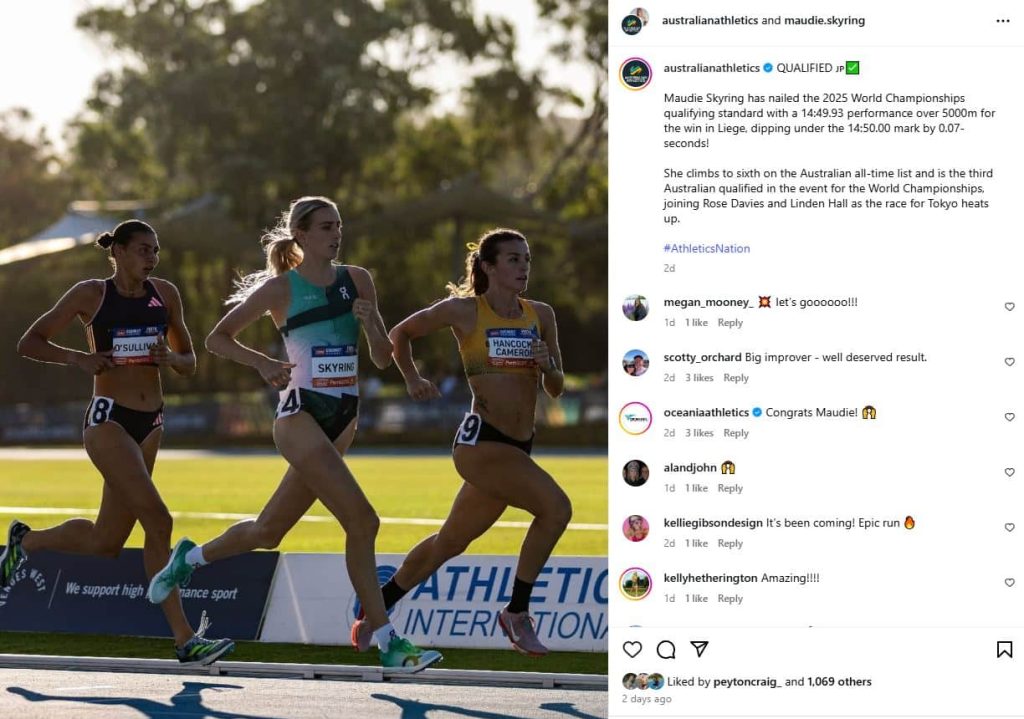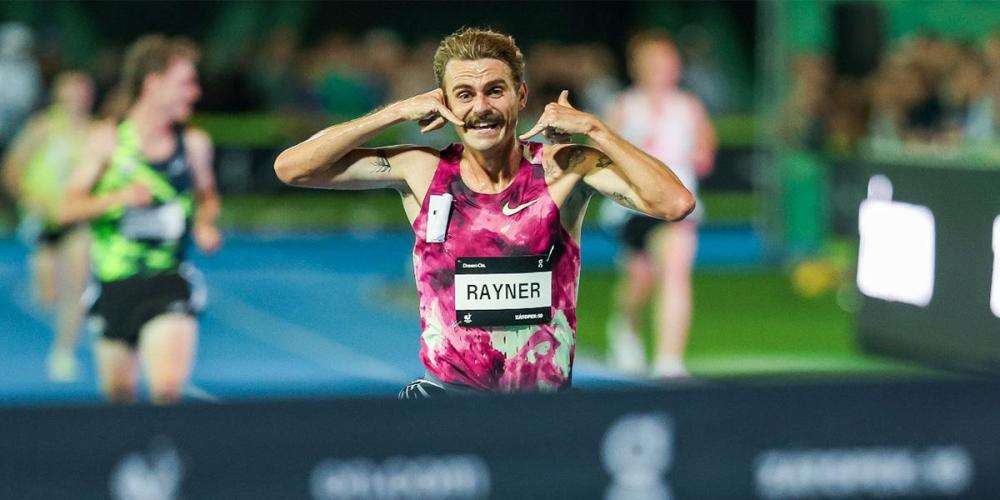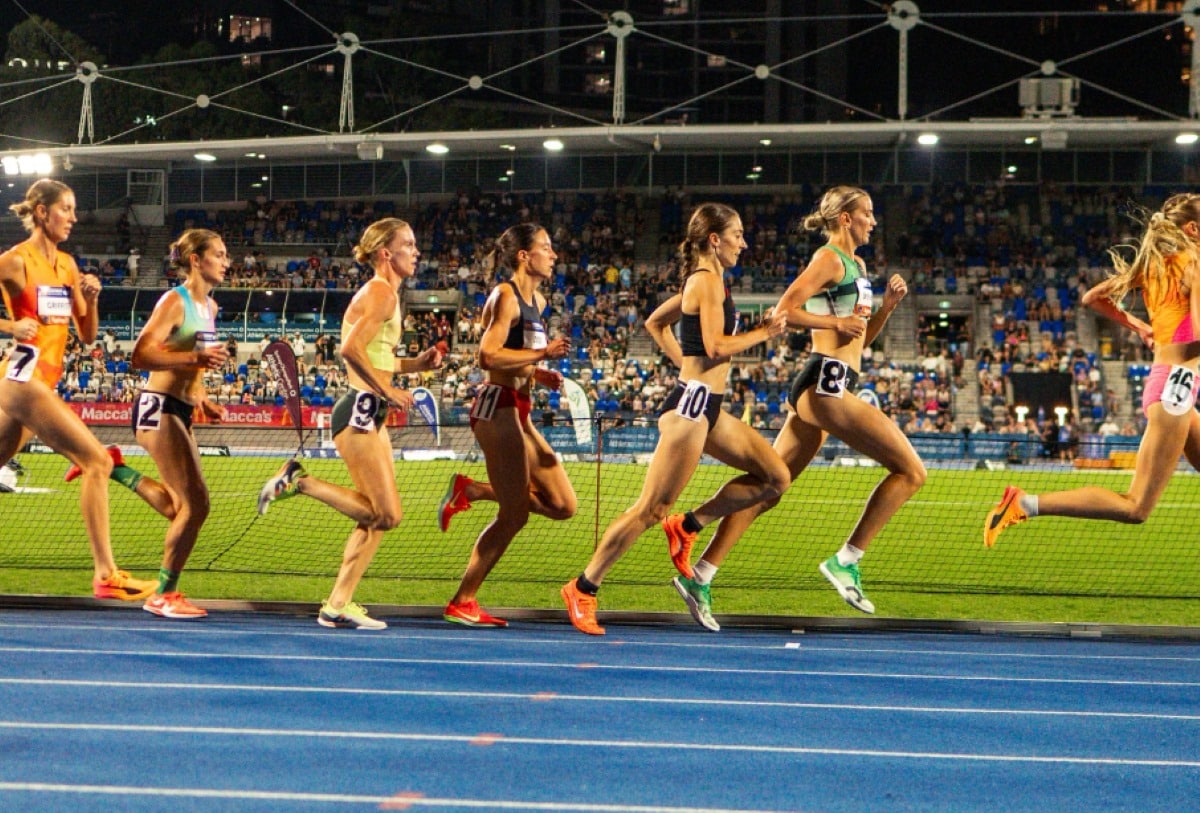From the time I started following Australian athletics seriously – lost in the mists of time, but probably the 1970s – there’s been one constant helping my research: Paul Jenes and his Australian lists.
Jenesy, as he’s so known to such a wide extent that it’s his usual email signature, is the official statistician for Australian Athletics. Previously, he was statistician for Athletics Australia, the Australian Athletic Union, Athletics Victoria, the Victorian Amateur Athletics Association and so on and so forth buried even deeper in the mists of time than my involvement.
Jenes is also the president of the international stats body, the Association of Track and Field Statisticians (ATFS), was an Australian selector for many years and helped inculcate the doyen of media commentators, Bruce McAvaney, into the world of athletics statistics (Bruce was a diligent pupil).
When Maudie Skyring ran a Tokyo25 automatic qualifier 14:49.93 in Liege, Belgium, this week, it set me wondering how many other performances might have snuck under the radar in recent weeks. Skyring has been progressing steadily but quietly in her quest for a place in the Tokyo team – personal bests at 1500 and 3000 in the domestic series, fifth in a ‘pb’ 15:06 and change in the nationals before her first sub-15 in the Xiamen Diamond League and, now, 14:49.It’s a crowded field in women’s 5000 at the moment. Jess Hull won the national title from Georgia Griffith and Rose Davies. Of the three, Davies is the only one with a big Q standard. Since the championships, Linden Hall and Skyring have achieved it. Davies and Griffith are on the entry list for the 5000 at London’s DL (19 July) this weekend.
 These days we are spoiled for sources of athletics statistics, but when it comes to Australian smokies, Paul Jenes’s lists are still the best place to look. With five weeks to go until the world championships qualifying window slams shut, eight weeks to the opening day of competition, he is updating at the rate of one a week. The one that dropped into inboxes this week was number twenty-six. You do the maths.
These days we are spoiled for sources of athletics statistics, but when it comes to Australian smokies, Paul Jenes’s lists are still the best place to look. With five weeks to go until the world championships qualifying window slams shut, eight weeks to the opening day of competition, he is updating at the rate of one a week. The one that dropped into inboxes this week was number twenty-six. You do the maths.
No.26 also informed us that in Kortrijk, Belgium, Seth O’Donnell came close to his in-the-dark ‘pb’ of 3:36.8 with an official personal best of 3:37.82 for 1500. O’Donnell finished third to another Aussie, Alex Stitt, 3:37.13. Stitt is Tokyo 1500-qualified by world rankings, but to get selected he must, at minimum, jump over the likes of Ollie Hoare, Adam Spencer, Jude Thomas and Jack Anstey.
Spencer, second in the nationals, missed the auto-Q by just 0.19 when he ran 3:50.19 in the International Mile at the Prefontaine Classic. The already selected Cam Myers, Hoare, Spencer and Thomas are all in the London 1500.
Others quietly progressing towards Tokyo qualification by hook (the auto-Q) or by crook (the rankings) include Klara Dess (pb 1500 of 4:7.05), and Stephanie Ratcliffe (71.37 hammer throw). Jack Rayner ran 7:48.98 for 3000 metres in Marseille, Michelle Jenneke was under 13 seconds in the 100 hurdles and Torrie Lewis ran a windy 11.14 in the 100 and a wind-legal 23.01 in the 200.

Besides Liege, this week brought other mid-week competitions which will make it into Jenes list no.27. Ed Trippas ran an 8:21 3000 steeple. Cameron McEntyre threw a personal best 82.35 in the javelin in Lucerne. Izzi Batt-Doyle and Natalie Rule ran 14:53 and 15:09, respectively, in Skyring’s 5000. Lianna Davidson, who upstaged Mackenzie Little to win the javelin in Melbourne’s Continental Tour meeting earlier this year, threw 60.50 in Lucerne.
Reece Holder ran 44.54 for 4000 in the Italian town of Brescia, just one-hundredth of a second slower than the ‘pb’ which took him into the Paris24 Olympic 400 semis. Eleanor Patterson won the high jump with a 1.97 clearance.
It might be too early to proclaim “it’s all happening”, but there certainly is a bit going on as we draw closer to Tokyo. There’s significant weekend meetings in London, Madrid and Heusden-Zolder (Belgium) featuring solid numbers of Australians and next week brings the World University Games in Germany from 21-27 July.
There should be plenty of headline performances in that lot, but if you want to dive deeper into the detail you can follow Paul Jenes’s lists through the Australian Athletics website.




Jenesy doesn’t get the applause he should after his stellar work since the 1970s (when he was described as ‘young’).
Good job mentioning him Len!
I agree old sprinters who finished sport playing football and tennis still have a legacy owed to Paul Jenes who gave Bush kids like me exposure with the help of Pat Clohessy and Joe Carmody.